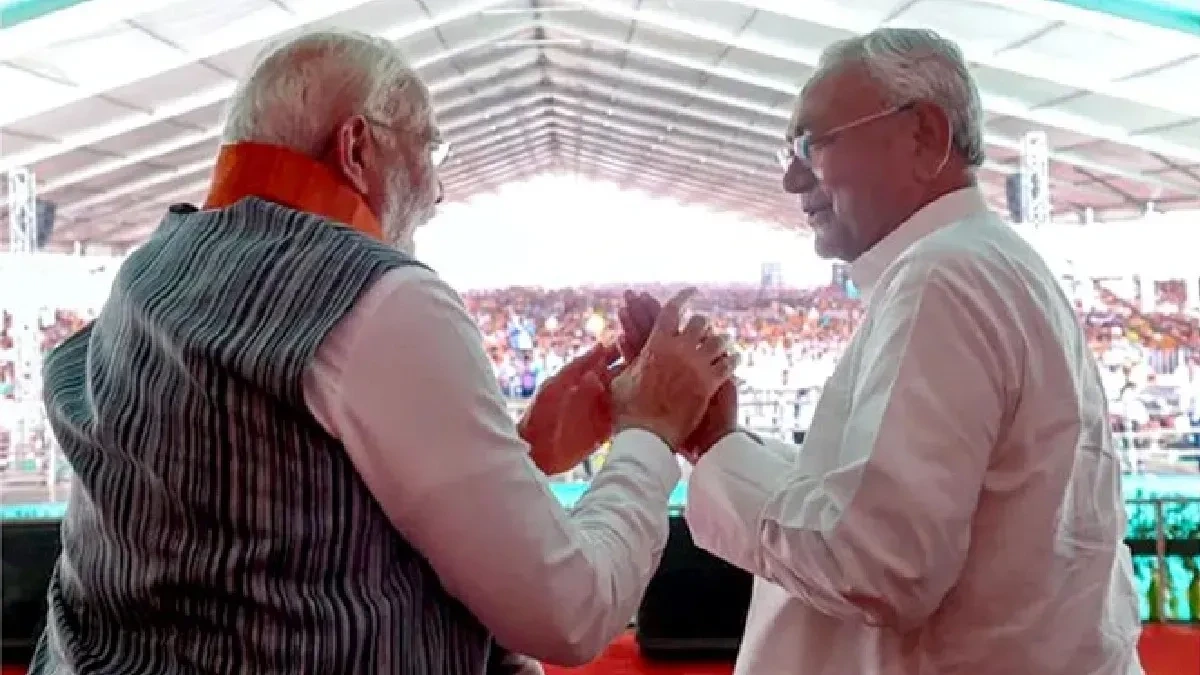As the political temperature rises in Bihar, the latest C-Voter election tracker survey reveals a complex and multi-layered electoral landscape.
While RJD’s Tejashwi Yadav’s popularity as the most preferred Chief Ministerial candidate has declined, Prime Minister Narendra Modi’s approval ratings in the state have surged.
This poses a critical question: Will the upcoming Bihar elections be fought on local leadership and caste equations, or will “Brand Modi” once again be the deciding factor for the NDA?
The Chief Ministerial Contest
According to the survey data spanning from February to June, Tejashwi Yadav remains the frontrunner for the CM post. However, his preference rating has moderated, dipping from a high of 40.6% in February to 34.6% in the latest June poll.
Incumbent Chief Minister Nitish Kumar of the JDU holds the second position, with his support remaining relatively stable, moving from 18.4% in February to 17.4% in June.
Perhaps the most significant trend is the steady rise of political strategist-turned-leader Prashant Kishor. His preference numbers have climbed consistently from 14.9% in February to 18.2% in June, placing him ahead of Nitish Kumar and marking him as a formidable independent force.
The survey also tracks support for LJP’s Chirag Paswan, whose popularity peaked at 10.6% in May before settling at 9.9% in June, and the BJP’s state chief Samrat Chaudhary, who registered 9.6% support in the latest poll.
The National Leadership Factor: Modi vs. Rahul
The C-Voter survey highlights a stark contrast in the popularity of national leaders, which could heavily influence the election’s narrative. The percentage of Biharis “very much satisfied” with Prime Minister Modi’s performance has seen a significant jump, increasing from 44.5% in February to a strong 50.6% in June. This high approval rating provides a powerful backdrop for the BJP-led NDA campaign.
On the other side, the numbers for Congress leader Rahul Gandhi paint a different picture. The proportion of respondents “very much satisfied” with him dipped from 34.4% in February to 30.9% in June. More critically, the number of people “not at all satisfied” with his performance has increased, reaching 37.2% in the latest survey.
Analysis: A “Localized Election” with a National Flavour
According to Yashwant Deshmukh of C-Voter, the Bihar election will fundamentally be a localized contest. “Let’s not make any mistake about it,” Deshmukh stated, emphasizing that local issues and caste combinations will be primary drivers.
However, he cautioned against underestimating the influence of national leadership. “It’s a cumulative decision,” Deshmukh explained, noting that the immense goodwill the Prime Minister enjoys benefits the BJP and its allies. He described this dynamic as a “dual-edged sword,” where the BJP must localize its campaign strategy while leveraging the PM’s popularity, a tactic seen in states like Haryana and Maharashtra.
